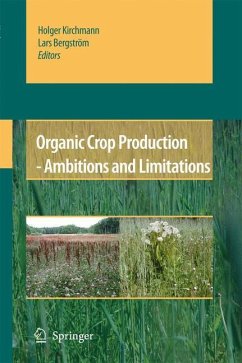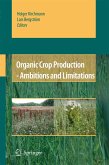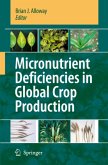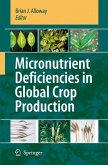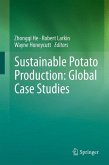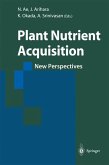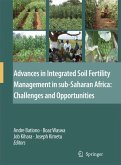Many people believe that organic agriculture is a solution for various problems related to food production. Organic agriculture is supposed to produce healthier products, does not pollute the environment, improves the fertility of soils, saves fossil fuels and enables high biodiversity.
This book has been written to provide scientifically based information on organic agriculture such as crop yields, food safety, nutrient use efficiency, leaching, long-term sustainability, greenhouse gas emissions and energy aspects. A number of scientists working with questions related to organic agriculture were invited to present the most recent research and to address critical issues. An unbiased selection of literature, facts rather than standpoints, and scientifically-based examinations instead of wishful thinking will help the reader be aware of difficulties involved with organic agriculture.
Organic agriculture, which originates from philosophies of nature, has often outlined key goals to reach long-term sustainability but practical solutions are lacking. The central tasks of agriculture - to produce sufficient food of high quality without harmful effects on the environment - seem to be difficult to achieve through exclusively applying organic principles ruling out many valuable possibilities and solutions.
This book has been written to provide scientifically based information on organic agriculture such as crop yields, food safety, nutrient use efficiency, leaching, long-term sustainability, greenhouse gas emissions and energy aspects. A number of scientists working with questions related to organic agriculture were invited to present the most recent research and to address critical issues. An unbiased selection of literature, facts rather than standpoints, and scientifically-based examinations instead of wishful thinking will help the reader be aware of difficulties involved with organic agriculture.
Organic agriculture, which originates from philosophies of nature, has often outlined key goals to reach long-term sustainability but practical solutions are lacking. The central tasks of agriculture - to produce sufficient food of high quality without harmful effects on the environment - seem to be difficult to achieve through exclusively applying organic principles ruling out many valuable possibilities and solutions.
From the reviews:
"This book uses scientific literature to argue that organic agriculture as a model for sustainable farming is flawed. ... The authors make many valid points and present interesting arguments that definitely need to be addressed by organic proponents. ... The work as a whole would serve as a useful starting place for an in-depth, graduate-level discussion of the organic approach, research methods, and sustainability of agriculture in general. ... Summing Up: Recommended. ... Graduate students through professional audiences." (J. R. Reeve, Choice, Vol. 46 (11), July, 2009)
"This book uses scientific literature to argue that organic agriculture as a model for sustainable farming is flawed. ... The authors make many valid points and present interesting arguments that definitely need to be addressed by organic proponents. ... The work as a whole would serve as a useful starting place for an in-depth, graduate-level discussion of the organic approach, research methods, and sustainability of agriculture in general. ... Summing Up: Recommended. ... Graduate students through professional audiences." (J. R. Reeve, Choice, Vol. 46 (11), July, 2009)

